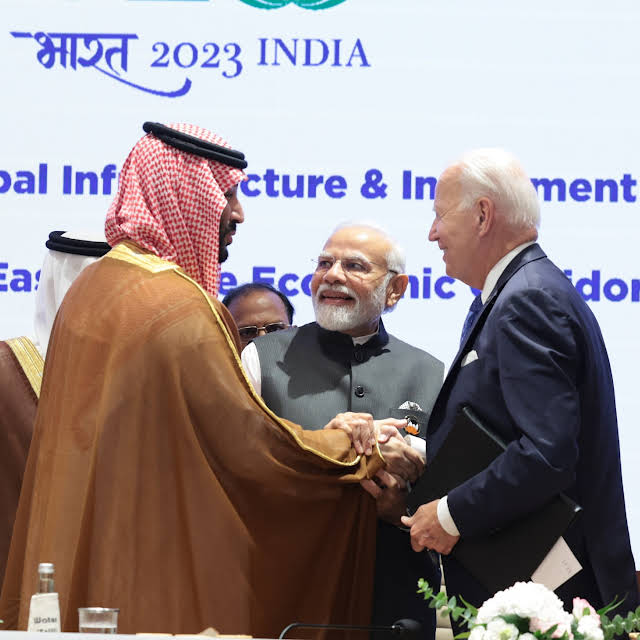The G20 Summit is a critical forum for the world’s leading economies to discuss and address global challenges. One of the pressing issues on the agenda in recent years has been the promotion of sustainable and environmentally friendly energy sources. Biofuels, which have gained prominence as an alternative to fossil fuels, took center stage at the G20 Summit as member countries formed a biofuel alliance to tackle the pressing issues of climate change and energy security.
What is Biofuel?
Biofuels are a class of renewable energy sources derived from organic materials. They are typically produced from plants, algae, or waste biomass.
Biofuels offer an eco-friendly alternative to conventional fossil fuels like coal, oil, and natural gas, as they emit significantly fewer greenhouse gases when burned.
There are three primary types of biofuels:
- First-generation biofuels: These are made from edible crops like corn, sugarcane, and soybeans. They include ethanol and biodiesel. First-generation biofuels have been criticized for their potential to compete with food crops, raising concerns about food security and land-use changes.
- Second-generation biofuels: These are produced from non-food feedstocks such as switchgrass, agricultural residues, and algae. Second-generation biofuels are considered more sustainable as they don’t directly compete with food production and can be grown on marginal lands.
- Third-generation biofuels: These are derived from microorganisms like algae. They are highly efficient and have the potential to produce biofuels without the limitations of land and water use.
India, the world’s third-largest oil importer and consumer, has taken a significant step in direction of selling clear vitality and decreasing its dependence on fossil fuels.
On September 9, 2023, Prime Minister Narendra Modi launched the Global Biofuels Alliance (GBA) on the G20 Summit in New Delhi, inviting other G20 nations to hitch the initiative.
The GBA goals to speed up the deployment of sustainable biofuels, particularly within the transportation sector, and assist the worldwide vitality transition.
Biofuels are renewable vitality sources derived from plant and animal materials, reminiscent of sugarcane, corn, jatropha, algae, and waste. They provide a viable different to non-renewable vitality sources reminiscent of petrol and diesel, and contribute to decreasing greenhouse fuel emissions, conserving biodiversity, and promoting rural growth and job creation. Nevertheless, for biofuels to make a significant impact on a global scale, they have to be sustainable. Sustainable biofuels are produced by way of modern and environmentally pleasant strategies that don’t negatively have an effect on meals safety or biodiversity.
The GBA follows a model just like the International Solar Alliance (ISA), which was initiated by India and France in 2015 to make clean and affordable solar energy accessible to all. The GBA will facilitate cooperation and change of greatest practices among the many members countries, strengthen domestic markets, facilitate world biofuels trade, develop concrete policy frameworks, and provide technical assist for national biofuels programs worldwide. The GBA can even work with different multilateral and regional groupings, such because the Quad, to contribute towards a free, open, inclusive, and resilient Indo-Pacific.
The GBA can even present a boost to India’s economy and innovation. In response to a report by NITI Aayog, India’s biofuel industry has the potential to generate over 1 million direct and oblique jobs by 2030. The GBA can even create alternatives for collaboration between the Indian and foreign private sectors in the whole worth chain of the biofuel economy. Furthermore, the GBA will foster analysis and growth in new technologies and processes for producing sustainable biofuels.
The GBA has acquired assist from a number of world leaders, together with US President Joe Biden, who met with Prime Minister Modi on the eve of the G20 Summit. The two leaders mentioned numerous features of bilateral cooperation, together with technology, space, trade, defense, and health.
President Biden reaffirmed his assist for a reformed UN Security Council with India as an everlasting member.
He additionally appreciated India’s signing of the Artemis Accords, which advance a standard imaginative and prescient of space exploration for the good thing about all humankind.
Why Biofuel Alliance Matters
The formation of a biofuel alliance at the G20 Summit represents a significant step toward addressing the global energy and environmental challenges we face today:
- Climate Change Mitigation: The burning of fossil fuels is a major contributor to climate change. Biofuels, particularly second and third-generation varieties, offer a cleaner alternative. They can significantly reduce carbon emissions and help countries meet their climate goals under the Paris Agreement.
- Energy Security: Biofuels reduce dependence on fossil fuel imports, thereby enhancing energy security. By investing in domestic biofuel production, countries can reduce their vulnerability to fluctuations in global oil prices and supply disruptions.
- Economic Growth: The biofuel industry has the potential to create jobs and stimulate economic growth, especially in rural areas where biomass feedstocks are abundant. This aligns with the G20’s focus on sustainable economic development.
- Diversification of Energy Sources: Relying solely on fossil fuels poses risks to energy stability. The biofuel alliance encourages member countries to diversify their energy portfolios, reducing the impact of supply shocks.
Key Initiatives of the Biofuel Alliance
The G20 biofuel alliance aims to advance the production and adoption of sustainable biofuels. Some key initiatives include:
- Research and Development: Member countries will collaborate on research and development efforts to improve biofuel production efficiency, reduce costs, and develop innovative technologies.
- Policy Harmonization: The alliance will work toward harmonizing biofuel policies and standards to facilitate international trade and ensure the sustainability of biofuel production.
- Investment and Infrastructure: Member countries will encourage investments in biofuel infrastructure, such as production facilities and distribution networks, to promote widespread adoption.
- Education and Awareness: The alliance will launch public awareness campaigns to educate consumers about the benefits of biofuels and promote responsible consumption.
Conclusion
The formation of a biofuel alliance at the G20 Summit is a positive step toward a more sustainable and environmentally friendly energy future. By promoting the production and use of biofuels, member countries can reduce their carbon footprints, enhance energy security, and foster economic growth. As the world continues to grapple with the challenges of climate change and energy security, the G20 biofuel alliance offers a ray of hope for a cleaner and more sustainable world.





